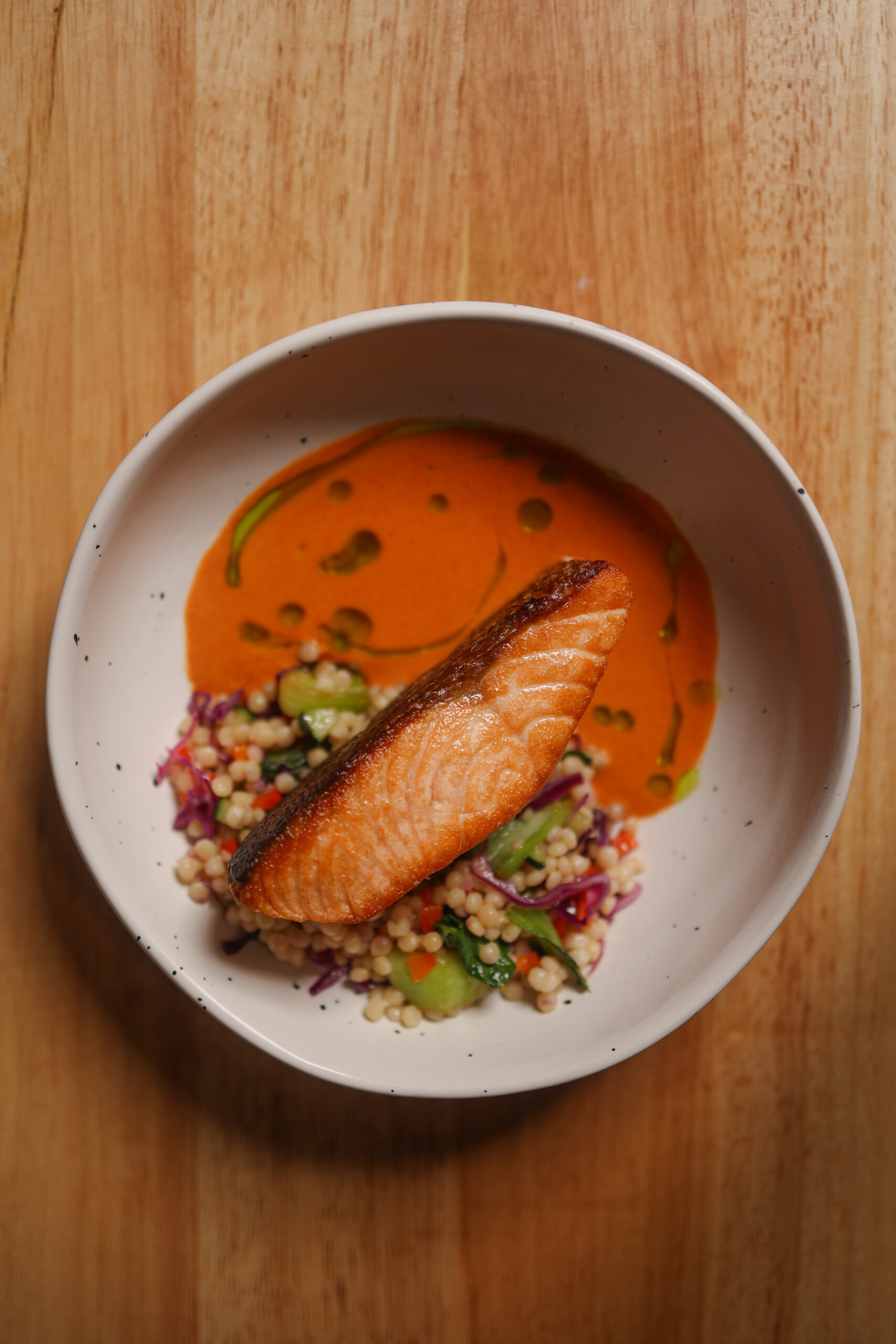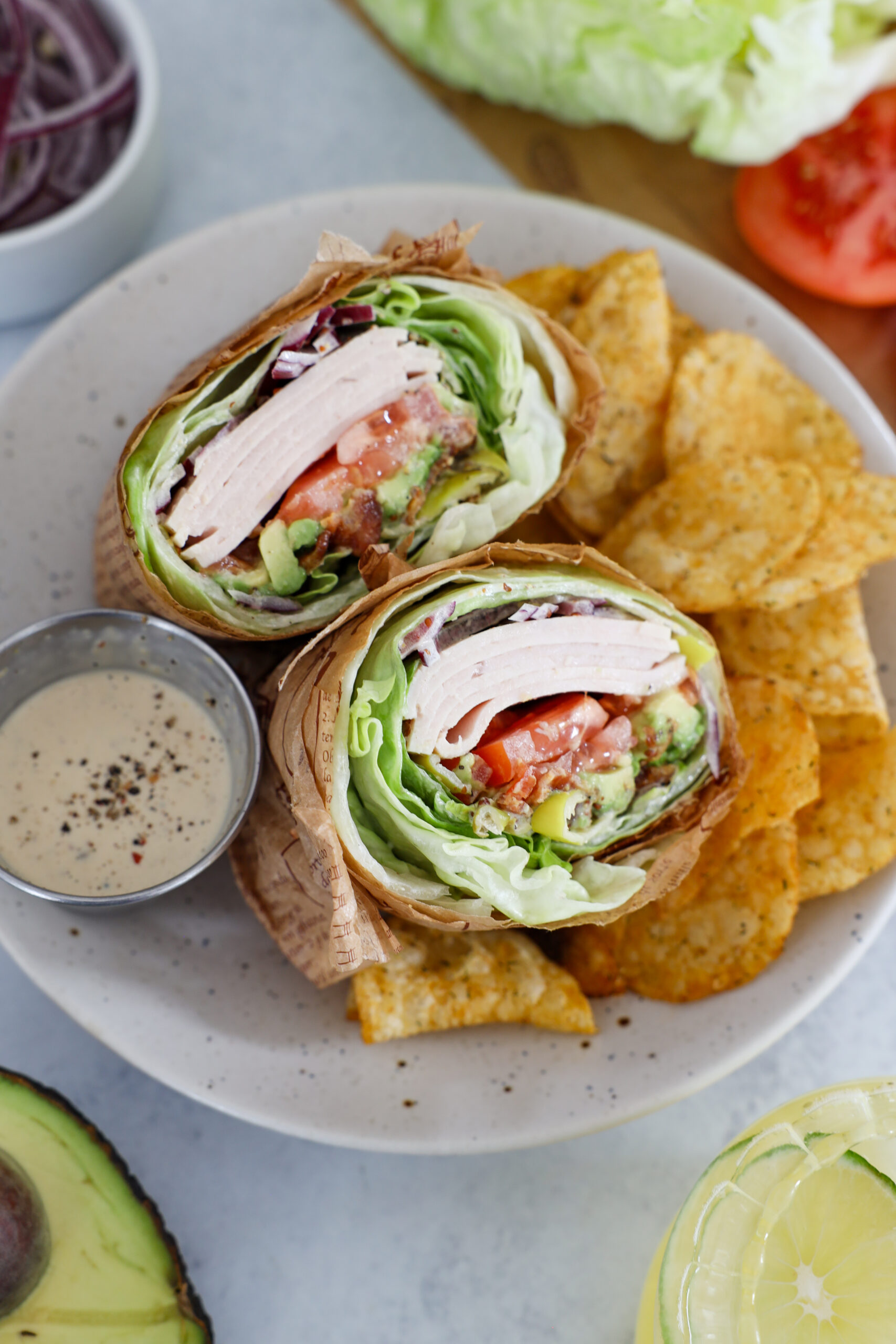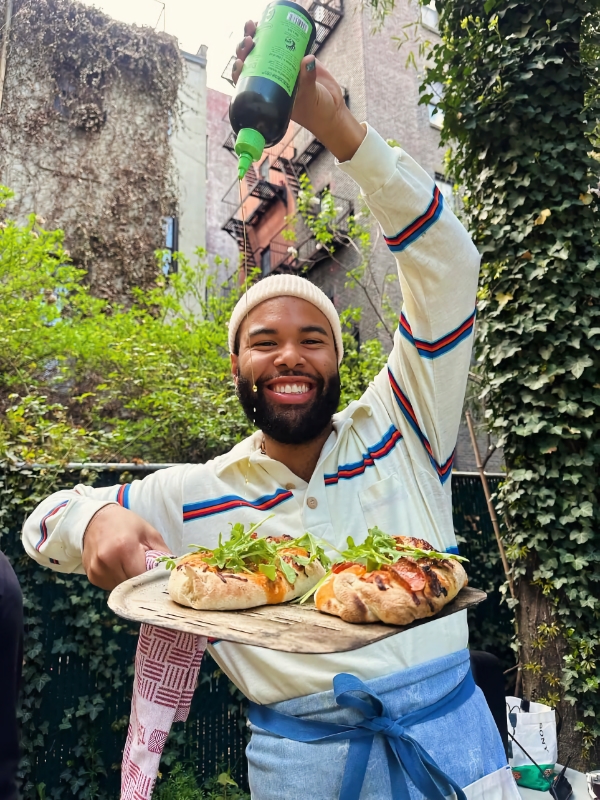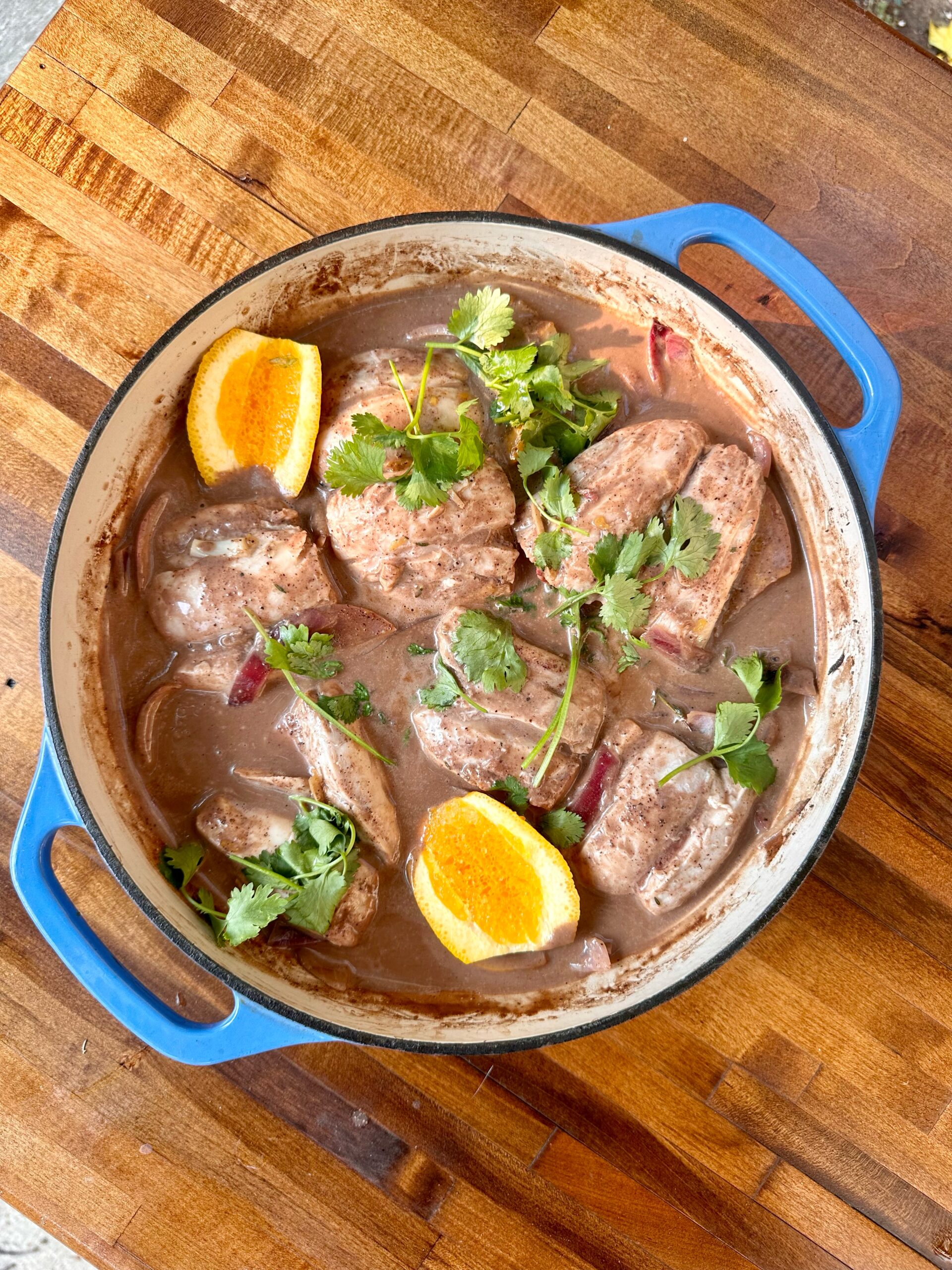When Ramona Button found her late father’s seeds in the attic of the adobe house she grew up in, she held the future of her people’s food sovereignty in her hands—the potential to revitalize a nearly extinct tepary bean, the bavi. “I knew that my father would want me to bring this food back to my people,” Button tells Sweet July.
An ancient food staple of the Southwest, tepary beans evolved to adapt to the scorching heat of the Sonoran Desert, making it one of the most drought-tolerant crops in the world, able to grow in an Arizona summer with the water from a single rainfall. But with colonization—and lack of water endangering Indigenous subsistence farmers—it was at risk of dying out completely. By finding those white and brown tepary seeds, in glass jars tucked in an old wooden trunk, Button had the power to change everything.
Ramona Button is Pima, also called Akimel O’odham, which means “River People” in the O’odham language. The Akimel O’odham get their name from their land, having lived on the banks of the Gila, Salt, and Santa Cruz rivers in what is now known as Arizona. Pima and Maricopa people diverted water from the Gila to grow a complex variety of crops, including tobacco and cotton. As a child, Button’s father—who was Tohono O’odham (“Desert People”), a tribe further south in an even more arid climate—would fetch water from the Gila for their own farm. “He said on the river’s edge you would find fertile, good soil,” Button explains.
Ramona Farms was born in 1974, when Button and her husband Terry began farming the same 10-acre allotment where her father, Francisco “Chiigo” Smith, had grown corn, chiles, squash, gourds, Pima wheat, melons, sugar cane, and tepary beans. The land also cultivated plants that Button’s mother Margaret, an herbalist and traditional healer, used for medicine. When community elders asked the Buttons to try to bring back the bavi a few years later, Ramona’s attic discovery launched an unforgettable journey.
Now, almost 50 years later, Ramona Farms’ tepary beans are sold in grocery stores and markets all over the country, including Whole Foods and NATIF’s Indigenous Food Lab. Phoenix restaurants like Tia Carmen and the legendary Indigenous-owned Fry Bread House source their beans and Pima corn from the farm, which, through leasing from other members of the Gila River Indian Reservation, has grown from 10 acres to over 20,000.
During my visit, I found Ramona Farms truly stunning—rows of cotton stretching towards the mountainous horizon; fresh corn roasting on a mesquite fire; shaggy trees hiding a universe of animals; hawks soaring above the fields—a beautiful still quality amidst teeming life. Along with the bavi, they grow garbanzo beans; heirloom wheats like Pima Club, White Sonora, and durum; and several varieties of heritage corn, including Pima 60-day corn. In the farm’s market you can also find ga’ivsa, a traditional delicacy.
For Brandy Button, Ramona and Terry’s daughter and the farm’s office manager, they’re part of a nationwide revolution. As she tells Sweet July, “It’s incredible to see so many other Native producers across the country…getting revitalized in their food systems and figuring out ways to sustain them.”
The centrality of tepary beans to her people was something Button’s father rooted in her from an early age. Francisco Smith was a multi-talented man, fiercely connected to his culture, who never spoke English; only Pima and O’odham. “My father grew everything we ate,” Button says. “He was also a seed saver. He taught me how important it was to move these products into the future.”
Seedsavers are community members who preserve precious Indigenous seeds for future generations; protecting these crops is considered a sacred honor. When Button happened across the tepary bean seeds in the attic, she knew the impact they’d have on her people’s culture. And as a nurse, she was also sure they could benefit their health.
Tepary beans are packed with protein and fiber that help control conditions like high or low cholesterol and diabetes. Due to the ways their ancestral foods were endangered (and replaced with government commodity food programs of little nutrition), the Pima have incredibly high rates of diabetes—at one point the highest in the world. “I looked at [the seeds] and remembered my father saying “Go back to your foods…It’s vital to your health.’” Her mother told her, “The things your father is growing, you will need in the future.”
As part of his farming practice, Button’s father would test the soil for different mixtures to optimize growth. Button wishes she had written down his research: “I’d be more efficient in doing it the way he did it,” she admits. The passing down of his knowledge over generations is why Ramona Farms remains a family business, with its members working in various roles to carry the legacy forward.
Brandy’s daughter, Isabella, is studying biochemistry at the University of Arizona and planning a career as an OB/GYN. She wants to “incorporate nutritional aspects to help young mothers and their families,” says Brandy, and will undoubtedly combine her scientific education with the wisdom of her people. “Especially because she is going to pursue a career in Western medicine, it’s very important for me to ingrain in her that food is medicine, that plants are medicine,” Brandy says. “It has to come from the heart and be felt in the heart for her to carry it with her.”
In 2004, Indigenous activists and allies were victorious with the passage of the Arizona Water Settlement Act. The settlement gave funding (partial reparations, really) to the Gila River Indian Community so they could rebuild and expand the water infrastructure that was ravaged by colonialism. With this act, the Buttons were able to grow tepary beans more easily and put focus on getting the community to reconnect with them.
Button family recipes are served in trendy eateries like Tia Carmen, where I enjoyed lamb kebabs on a bed of white tepary bean purée—the white beans have a sweet taste, while the brown ones are earthier. But they’re best, in my opinion, served by Ramona herself. She gave me poshol: brown tepary beans seasoned with cumin and chile pepper, and stewed in corn and onions (recipe below). The dish is also a favorite of Brandy, who attended culinary school. “When you cook them longer, they develop a gravy and the bean has time to develop that gelatinous goodness—that juice of the bean that makes such a great broth, full of flavor,” she says.
Brandy has other delicious bavi go-tos. “The white beans are very buttery and creamy and have a cheddar essence to them, so I love to [add] chopped herbs and a tiny bit of butter with salt and pepper. It’s super simple and I love it.” For the black tepary beans, she prefers them with a bison crumble, barbeque sauce, and cheddar cheese, or with forbidden rice and microgreens.
The bavi sustained Button’s people for as many generations as there are stars. And now, largely thanks to her efforts—and those of her father, her community, and the vibrant farm she and her family have built—the beans will continue to sustain them as they navigate a future made more uncertain by the climate crisis. As flooding becomes more common in the Southwest, tepary beans and other crops stand the risk of being in further danger. It’s why we must continue to invest in Indigenous farmers, who carry generations of vital bio-cultural knowledge and are the cornerstone of a sustainable future.
“We are here,” says Brandy. “Native farmers exist and we want our food to come back to our people.”
RECIPE:
Traditional Poshol
Recipe Courtesy of Ramona Button
INGREDIENTS
2 lbs brown tepary beans (cleaned, rinsed, and soaked)
1/3 cup whole wheat kernels
1/4 cup dried roasted sweet corn or white corn (optional)
1/2 onion (quartered or diced)
1 clove garlic (optional)
1/8 tsp of cumin (about 2 pinches)
2 dried red chile pepper (whole)
1/4 lb bacon fried & crumbled (optional)
INSTRUCTIONS
Sort and rinse beans.
Add water to cover, plus 2 to 4 inches.
Bring all ingredients to a rapid boil for 30 minutes.
Reduce heat, cover, and simmer for 6 hours (or until tender). Great when cooked in a crock pot!














